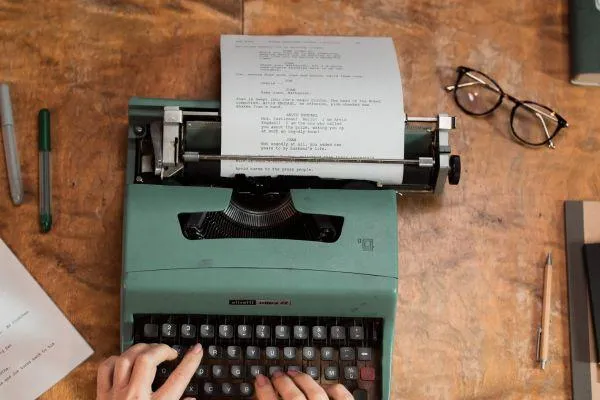
To Script? Or not to Script? The pros and cons of using a script for Found Footage films
When it comes to making found footage films, one of the biggest questions is whether to use a polished script or let the actors wing it with more of an outline. Both approaches have their merits and pitfalls, and choosing the right one can make or break your film. Let's dive into the pros and cons of using a polished script in found footage films.

Pros of Using a Script
1. Structure and Consistency
A script provides a solid foundation for your film, ensuring that your story doesn’t veer off into a confusing mess. It helps keep everyone on the same page and prevents your found footage masterpiece from turning into an experimental art film that only your mom will understand.
2. Controlled Pacing
With a script, you can carefully plan the pacing of your scares and plot twists. You won’t have to rely on your actors' improv skills to land those terrifying moments. This way, your film can build tension at just the right moments, rather than unintentionally turning into a found footage comedy.
3. Clear Dialogue
A script guarantees that your characters have lines that make sense, rather than spending two hours talking about the weather or trying to remember their lines. It also means you won’t end up with dialogue that sounds like it was written by a group of teenagers texting each other at 3 a.m.
4. Consistent Character Development
Scripts ensure your characters develop as the plot unfolds, rather than having them switch personalities between scenes like they’re starring in a soap opera. This is crucial for keeping your audience engaged and invested in your characters’ fates.
Cons of Using a Script
1. Loss of Authenticity
Found footage films thrive on authenticity, and a strict script can sometimes make your film feel too staged. You want your audience to believe they’re watching real events unfold, not a drama class project. A script can sometimes strip away the natural chaos that gives found footage its unique charm.
2. Limited Flexibility
Using a script can box your actors into specific performances, leaving little room for spontaneity or genuine reactions. Found footage’s strength lies in capturing raw, unfiltered moments, and a rigid script can stifle that natural energy.
3. Increased Pressure on Actors
While some actors love having a script to work from, others might find it stressful, especially in the found footage genre where they’re expected to deliver authentic performances. They might feel pressured to memorize lines perfectly, which can lead to performances that feel forced or unnatural.
4. Risk of Overproduction
Found footage films are often celebrated for their low-budget, DIY feel. A tightly scripted film might lose some of that raw, gritty essence that fans love. You don’t want your film to feel like it’s trying too hard—like a high school theater production with a budget for pyrotechnics.
Deciding whether to use a script in a found footage film ultimately depends on the story you want to tell and how much you trust your actors’ improvisational skills. A script can provide structure and ensure a coherent story, but it can also risk losing the authenticity and spontaneity that makes found footage so engaging. Whichever route you choose, just remember: the goal is to keep the audience guessing, and maybe a little queasy.

